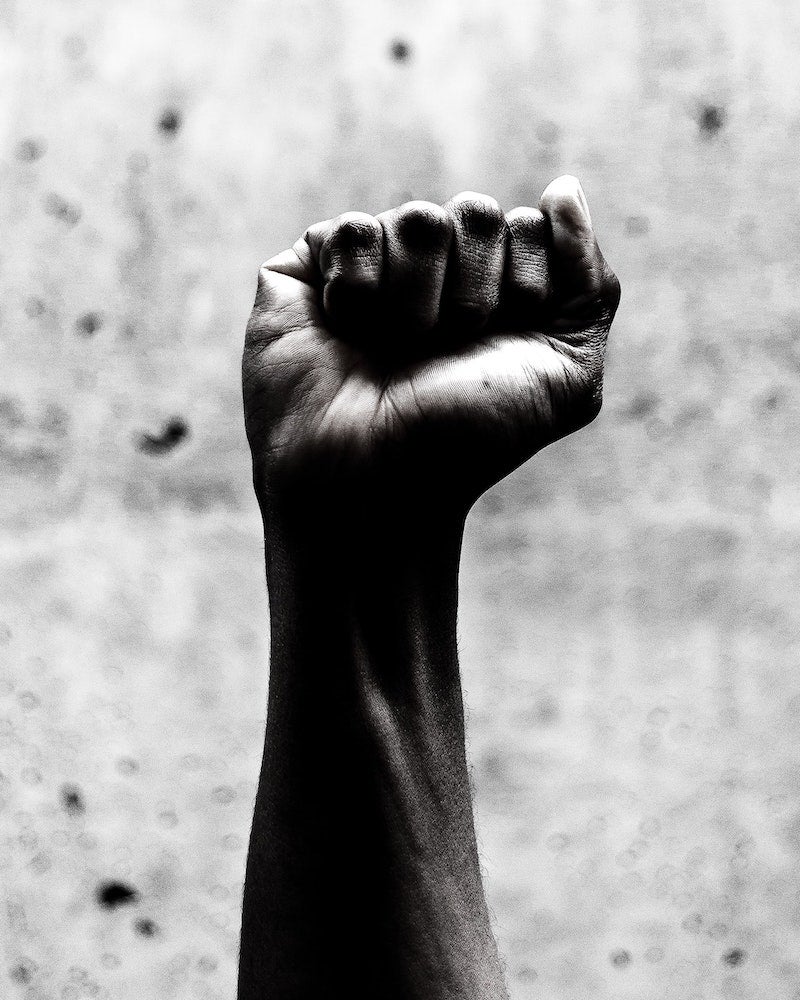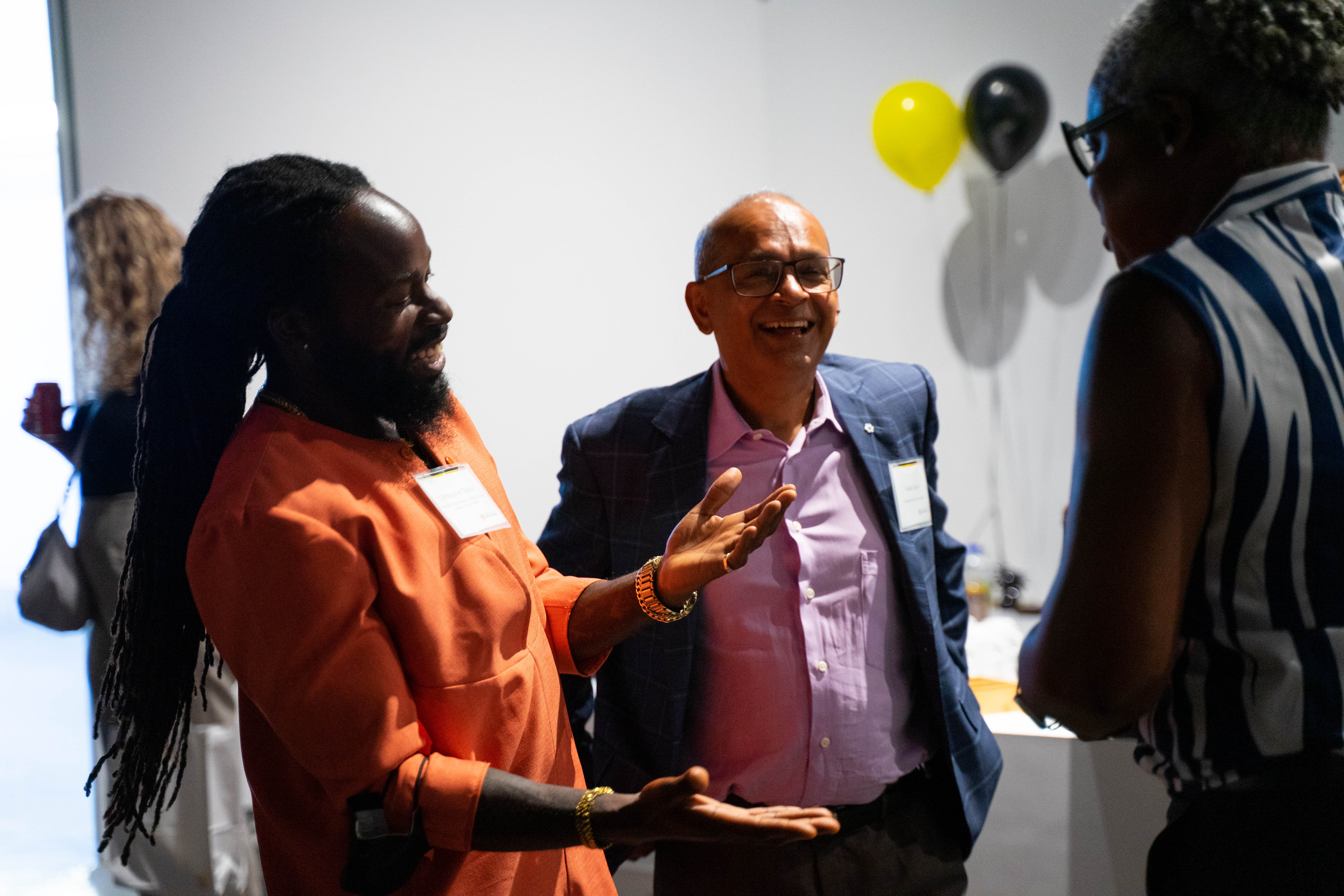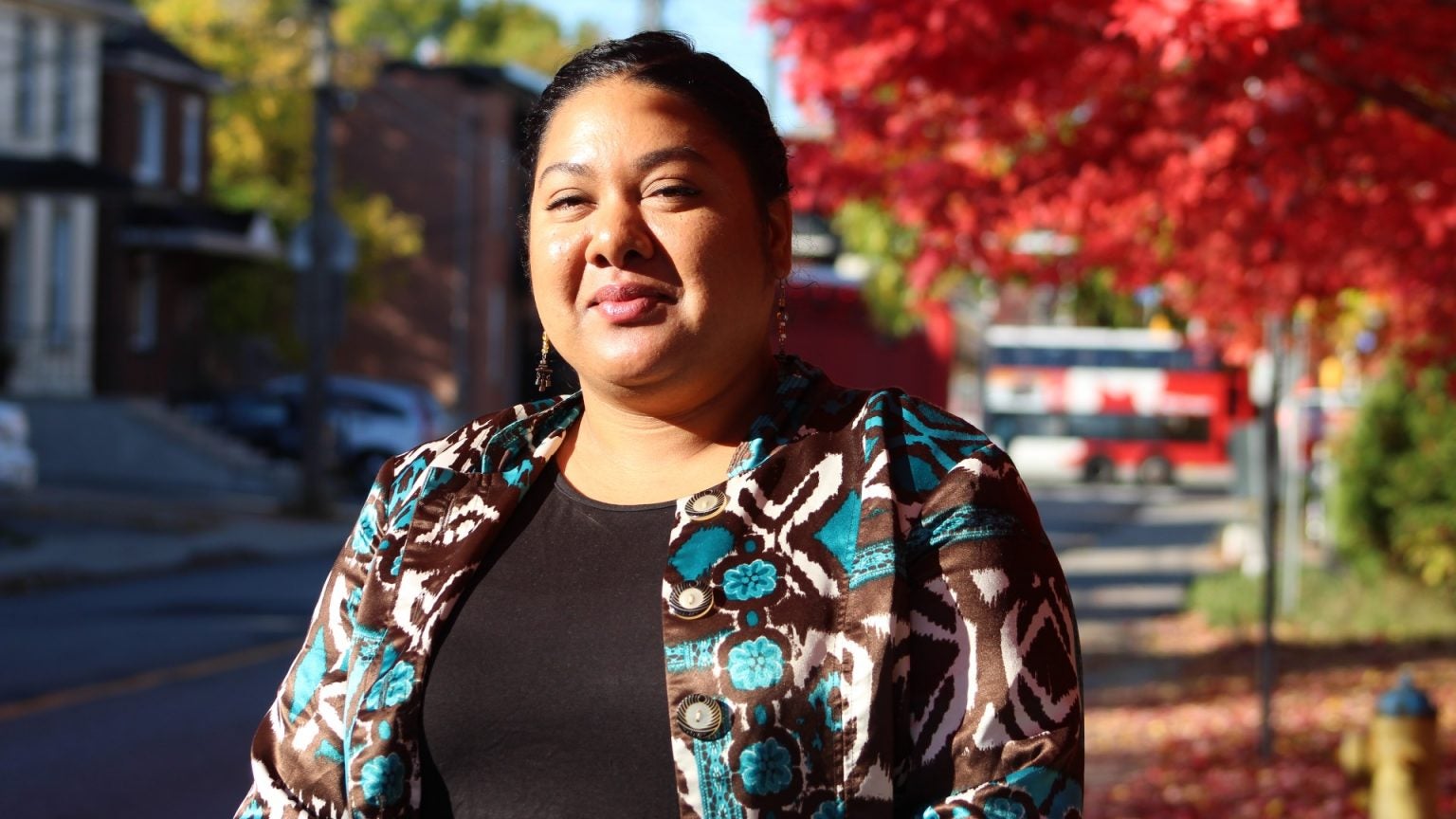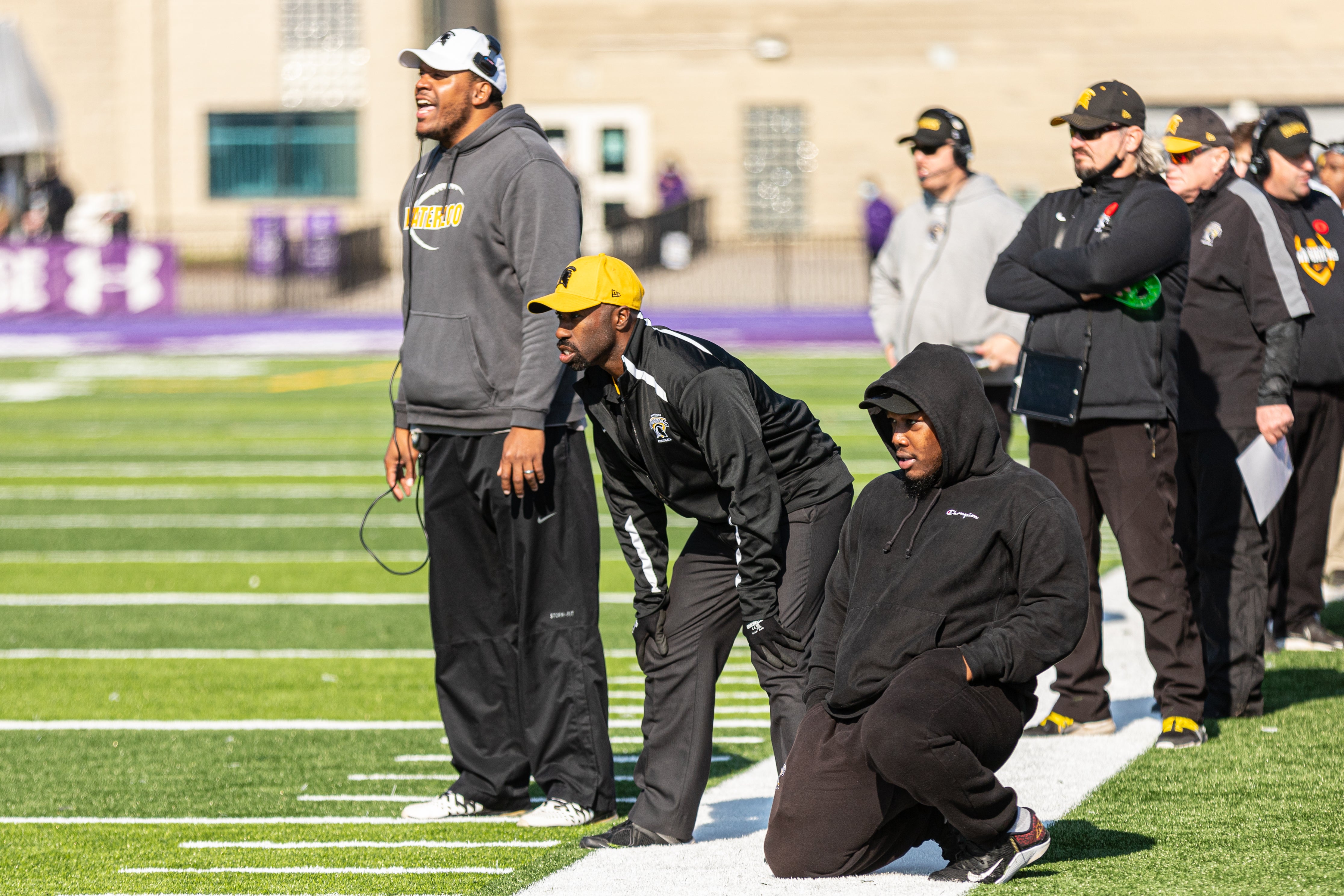
Welcome to the 15th issue of The Catalyst Anti-racism newsletter.
The Catalyst provides the University community with monthly updates from individuals and teams working across campus to counter systemic racism and oppression and highlights excellence from Black, Indigenous and other racialized groups.
Click here to read past issues of the Catalyst.
In this issue:
- Recognizing Emancipation Day
- President Goel meets with new Black faculty and staff
- Athletics launches Black Apprenticeship Coaching Program
- New Anti-racism unit added to EDI-RO
- Meet Sharyn Gittens, International Student Experience assistant (co-op)
- Q and A with the experts
- Why Access Matters For Black Entrepreneurs
Subscribe to The Catalyst to receive each issue directly to your inbox

Message from the Chair
Recognizing Emancipation Day

A message from Dr. Christopher Taylor, Associate Vice-President, Equity, Diversity, Inclusion and Anti-racism.
Following years of campaigning by Black lawmakers and community advocates, in 2021, the government of Canada federally recognized August 1, as Emancipation Day, and the month of August, as Emancipation Month.
While it was less than 200 years ago, in 1834, that the British Empire ended the practice of slavery in the former British colonies, which included Canada, many Canadians are unaware that Black and Indigenous peoples were once enslaved here.
Canada’s recognition of Emancipation Day and Month falls within the United Nations International Decade for People of African Descent, which recognizes that people of African descent (approximately 200 million people in the Americas) represent a distinct group, whose human rights must be promoted and protected.
Therefore, as we recognize Emancipation Day and Month, and appreciate the strength and perseverance of Black communities, it is equally important that we address the underacknowledged history of slavery and anti-Black racism in Canada.
I believe that Emancipation Day should not be a celebration, but a call for action, a call for change, a call for a true understanding of the violence that is embedded in the policies, procedures, and actions of the systems that we live and work under. Emancipation Day and Month must be a clear call to action to reflect, educate and engage in the ongoing fight against anti-Black racism and discrimination.
Our history of enslavement, our history of colonialism, this country’s on-going history of settler colonialism, anti-Black racism, and white supremacy are defined through violence. This is something our society does not want to teach us, nor does it want us to know that our existence, and the attempted erasure of our existence was a physically, psychologically, emotionally, and spiritually violent act.
We also do not talk about the fact that during the period of enslavement, we were dehumanized to justify our given place as “beasts of burden.” That is violence. That our ancestors were marched from the interior to the coast, shackled and raped in the dungeons, abused and tortured on the ships, and worked to death in the Americas, is also violence. We were beaten, maimed, and killed, for profit. That is violence. We were legally stripped of our drums, our language, our beliefs, and displaced from our homes. That is violence. We are told we are not as smart as the other children in class. That is violence. We are told to believe that our skin colour or hair isn’t as pretty as a cartoon character named Ariel. That is violence.
Before we move forward, we have to understand and acknowledge that 188 years later, we are not truly free of all the forms of violence that we were ‘legally’ emancipated from on August 1, 1834.
We still have a lot of work to do. We must act collectively to end anti-Black racism and strive for justice. This is everyone’s work to do, every day.
If you are experiencing or have experienced anti-Black racism, you can find resources and support here.
Anti-racism across campus
President Goel meets with new Black faculty and staff

Newly hired Black faculty and staff recently received an official welcome to the University of Waterloo, during a meet and greet with President Vivek Goel and other senior leaders. The event, organized through a collaboration with the Black Faculty and Staff Collective (BFSC) and the Equity, Diversity, Inclusion and Anti-racism office (EDI-RO), is one of several orientation activities to welcome recently hired faculty and staff.
Increasing representation among Black and Indigenous faculty and staff to be more reflective of the community it serves and creating welcoming and supporting environments for new racialized hires to thrive are among the recommendations coming from the President’s Anti-racism Taskforce. UWaterloo’s strategic plan also acknowledges that having a diversity of voices and perspectives enriches teaching and research.
“Those here today represent another step towards our goal of identifying and addressing institutional barriers for Black students, staff and faculty,” said Vivek Goel, President and Vice-Chancellor of the University of Waterloo. “Attracting bright, talented, and committed professionals like yourself is evidence that our work towards embedding equity within our policies, processes, environments and experiences is bearing fruit,” he said.
A founding member of the BFSC, Dr. Kathy Hogarth, now Dean of Social Work at Wilfrid Laurier University, said that while it is inspiring to see some progress in increasing representation, it must also be acknowledged that this progress did not occur by accident.
“Your presence today represents the realization of the efforts of many, including our Black students groups such as Racial Advocacy for Inclusion, Solidarity, and Equity (RAISE), who along with Black faculty members, spoke out against racism, oppression, and a culture rooted in colonial norms, and who advocated at the highest levels of the institution for action in identifying and addressing systemic barriers that affect Blacks at the University,” she said, while addressing the gathering.
“Universities play an important role in educating students and the public about the inequities and injustices that continue to pervade society,” said Dr. Christopher Taylor, Associate Vice-President, Equity, Diversity, Inclusion and Anti-racism. “We all have a role to play in confronting and dismantling any system that upholds an ideology that either directly or indirectly asserts that one group is inherently superior to another,” he said.
The University of Waterloo’s Black Excellence initiative seeks to attract ten tenure-track/tenured academic appointments, representing emerging and established career stages, who will contribute to Black excellence across all six Waterloo Faculties, and to Waterloo’s goal of building and sustaining a culture of equity, diversity, and inclusivity. The initiative is ongoing and to date six Black faculty members have been hired.
The Catalyst Anti-racism newsletter will be produce features on these new Black faculty members and their research in upcoming months.
If you or anyone you know has experienced harm from racism or discrimination, please find help here.
New Anti-racism unit added to EDI-RO

A new unit has been incorporated into the Equity, Diversity, Inclusion and Anti-racism office (EDI-RO). The Anti-racism unit will provide strategic leadership to the university community to assist in effecting change through anti-racism policies, programs, practice. The overall purpose is to confront and dismantle oppressive structures to facilitate transformational change.
Under the direction of Jennisha Wilson, the successful candidate for the Director of Anti-racism position, the unit will also be responsible for oversight on delivering key anti-racism policy and strategic initiatives that support EDI-RO’s policy directions and priorities.
Wilson joined the University of Waterloo as the senior manager of Anti-racism response in June 2021. Since then, she has demonstrated her ability to apply anti-racism and anti-oppression lenses to managing, coaching, and mentoring staff on proven practices to address anti-racism and discrimination complaints and grievances. Wilson has also provided and facilitated anti-violence competency and capacity building.
The new Director of Anti-racism also brings over a decade of experience focused on anti-human trafficking, race and gender equity, inclusion, and Indigenous relations work within institutions, non-for-profits and community settings. Wilson is a founding member of the Black, Indigenous People of Colour Strategic Advisory Committee for the Ottawa Coalition to End Violence Against Women.
Wilson previously worked closely with Inuit Living in Ontario, as the Alluriarniq Program Manager at Tungasuvvingat Inuit, where she was instrumental in designing, implementing and growing the first Inuit-specific anti-human trafficking program in Canada. During her time as the Alluriarniq Program Manager, she worked with over 20 local, provincial and federal partners to advance the Inuit reality in the area of anti-violence.
In 2018, Wilson spoke as an institutional witness for the National Inquiry into Missing and Murdered Indigenous Women and 2-Spirited people and the House of Commons. Wilson's lived experiences as a Canadian of Afro-Indo Jamaican heritage, coupled with her professional experience in leadership, project management, program development and conflict mediation skills, have afforded her a perspective and skills to address systems of oppression.
“I am pleased to congratulate Jennisha Wilson on her recent appointment as Director of Anti-racism in the Equity, Diversity, Inclusion and Anti-Racism office,” said Dr. Christopher Taylor, associate vice-president, Equity, Diversity, Inclusion and Anti-Racism office. “Jennisha brings a wealth of experience to the role, and I look forward to her support in continuing to build and sustain a more inclusive environment at the institution.”
“I’m excited to start this new position,” Wilson said. “I look forward to developing innovative processes to positively influence and improve anti-racism policies and operations by strengthening outcomes for a wide range of diverse peoples and supporting recovery from the traumas of racial discrimination, exploitation and violence.”
Athletics launches Black Apprenticeship Coaching Program
Originally published on the Athletics and Recreation website on August 18, 2022

Warriors Athletics & Recreation is excited to announce the Black Apprenticeship Coaching Program in partnership with the Equity, Diversity, Inclusion & Anti-racism office (EDI-RO). This program has been developed to increase racialized representation in coaching positions for recent graduates to pursue coaching pathways with the Waterloo Warriors.
"The Black Apprenticeship Coaching Program is a much needed and long overdue initiative that will enhance opportunities for aspiring coaches to gain valuable hands-on experience," said Darrell Adams, co-founder of The Alliance and associate coach of the football program. "I am beyond excited to serve as a mentor in all aspects, as well as provide access to my network of peers. I hope this 'pilot' becomes the foundation of a sustainable program here at the University of Waterloo."
Read the entire article here.
Student feature
Meet Sharyn Gittens, International Student Experience assistant (co-op)

Sharyn Gittens is an International student from the Caribbean island of Barbados. She is studying psychology student in the Department of Psychology and is currently in a co-op role, as the International Student Experience assistant.
The Catalyst asked Sharyn to share what Emancipation Month meant to her as a Black, International student. This is what she shared:
When I think of Emancipation, I think of strength. It's a day to not only reflect on the freedoms we have, but to highlight the work of our strong-willed and determined ancestors who fought so hard for those freedoms. When I sit down and think of their experiences, I am in awe of the resilience that was present, that was passed from generation to generation until change was seen.
My interest in psychology shapes the way I view many situations, and although I know the psychological effects that being restrained had on the ancestors, I am always wowed by those who pushed and continue to push so that I could live as comfortably as I do now.
People who hold their blackness dear to their heart value connection, and this is seen in their involvement in Black cultural clubs. It's exciting and heart-warming to know that there are people on campus who have similar experiences to you. For me, I find value in connecting over simple things like braids, hair products, and music. I believe that there are always fellow Black students, who support each other, but I think there could be different ways that organizations, clubs, and departments on campus consider the Black Experience.
Initiatives like the President's Anti-Racism Taskforce (PART) is one way in which the UWaterloo has shown that it recognizes the importance of the to the Black Experience, but I think efforts could be made beyond this; efforts that address the unique joys of our culture. How about sourcing and renting out African board games in the Student Life Centre (SLC)? Why not sell afro picks and/or hair gel in International News at SLC? I also think that the Caribbean experience could also considered a bit more, as there are some differences between Caribbean and African cultures. Why not include some soca or reggae songs when making international playlists?
I envision a time when anti-racism and anti-oppression is fully embedded into every fabric of UWaterloo life. When people think of the University, I imagine that they make associations to Engineering, Math, or more broadly, academics. Imagine if anti-racism was embedded into the same DNA strand that makes UWaterloo what it is known for?
Research spotlight
Q and A with the experts: The role of Indigenous women in the preservation and transmission of traditional knowledge
Originally published by Media Relations on August 9

The International Day of the World’s Indigenous Peoples is celebrated globally on August 9th. It marks the date of the inaugural session of the Working Group on Indigenous Populations in 1982.
In keeping with this year’s theme, University of Waterloo historian and anthropologist Talena Atfield, answers questions about the roles of Indigenous women in preserving and transmitting traditional knowledges. Professor Atfield is a member of the Kanien’kehá:ka Nation of the Six Nations of the Grand River.
Read the entire article here.
Bulletin board
Why Access Matters For Black Entrepreneurs
Originally published by Velocity on 24 Jun 2022
Sit down with Rochelle Williams, founder of Painting Pastry Chef. Williams was the inaugural winner of the Black Business Showcase presented by LiftOff in 2022. Williams discusses how stereotypes are being dismantled and helping to create access to resources for black entrepreneurs. Watch the video here.
LiftOff is the region’s first and only Black-led incubator and accelerator program developed by the Caribbean Canadian Association of Waterloo Region (CCAWR), in collaboration with members of the entrepreneurial ecosystem of Waterloo Region and Wellington County.
Funded by the Government of Canada through the Federal Economic Development Agency for Southern Ontario, LIftOff, which has a vision of catalysing long-term prosperity and well-being through community innovation, was created with the goal of helping to improve Black communities through entrepreneurship. The 12-month program provides coaching, mentorship, networking, and other business support for Black early-stage and growth entrepreneurs.
Read more here.